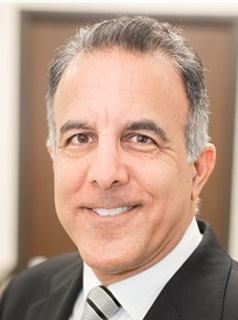Medicine at School: 5 Tips for Your Child's Prescription
The start of the school year is stressful for all parents, but this stress increases when you have a child who requires regular medication. As a parent, it’s important to communicate with your child about their medicine, what it does, how it helps, and why it’s important to take it on time. To make the transition from home to school easier, check out these 5 medication tips for back to school time.
1. Include School Professionals: It isn’t enough to speak to your child about the importance of taking his or her medicine on time every day. It’s also a good idea to include school professionals so that everybody is on the same page, and administrators understand what the medication is for, and when it should be taken. Before classes start, or within the first few weeks of school, schedule an appointment with your child’s teacher, vice principal, and school nurse.
By making sure that everybody in your child’s life at school understands his or her special needs, you can rest a little easier when it comes to medication.
2. Label Bottles: Of course, prescription medicine comes in labeled bottles from the pharmacy. These labels include the dosage information, your child’s name, and the name of the medication. If your child requires medication more than once a day, and must take medicine during the school day, it’s a good idea to separate at home pills, and at school pills, and label the bottle for school with important information.
Depending on the type of medication your child requires, and the age of your child, the school may suggest that the bottle be kept at the office. Having a proper label will fool proof instructions will guide administrators to provide the correct dosage at the right times each day. If your child is old enough to monitor his or her medication intake alone, the school may suggest bringing only the necessary daily dosage each day. This should still be stored in a sealed container or bag, and labelled appropriately so that it isn’t lost, or swallowed by another child.
3. Set a Timer: Even if your child is diligent in taking his or her medication each day, a daily reminder can be useful. A wristwatch with a timer and alarm can help your child to be successful with proper dosages of medicine. If your child can bring a cell phone to school, this can also be used to set an alarm. An alarm can also can be set to remind your child when it’s time to eat, if there are special dietary instructions involved in your child’s medical plan. Children diagnosed with diabetes, for example, have strict eating guidelines which may not always adhere to the school’s designated eating times.
4. Volunteer: School trips, and other special activities can make it difficult for proper distribution of medication. Often, school officials have very strict guidelines which they must adhere to when it comes to distributing a child’s medication. In some cases, distribution off school grounds may be prohibited by school staff. This can be difficult for children who wish to participate on social activities, but are unable to miss or postpone a dose. By volunteering to take part in school fairs, school trips, and other activities which make medication distribution difficult, you can take responsibility for the medication and your child can participate with his or her friends.
5. End of the Year Disposal: The plan you make at the beginning of the school year should also include instructions about end of year disposal. Medication which has expired should be reported to parents, and returned for proper disposal. At the end of the school year, any unused medicine, which has been stored at the school should also be returned. Even if your child will be attending he same school the following year, and his or her dosage is not likely to change, it is dangerous to leave prescription medication at the school during the summer months.
If you’re unsure about how to dispose of unused medication after it has expired, speak to your physician. In most cases, your doctor will not prescribe you more medication than can be taken in one month. In this way, the amount is used up, rather than left to expire. In special circumstances, some doctors may prescribe more than this at a time. Prescription medication should never be tossed into a standard trash can or compost bin.
Got the backpacks, lunch bags, pencils, and pens, but forgot to renew your prescription before school started? No problem, QuickRXRefills has got you covered. Our unique online system allows you to consult with a U.S. physician from the comfort of home. He or she will send your prescription to the nearest pharmacy for pickup, to save you long lines, embarrassing conversations, and exorbitant costs

WARNING: Limitations of Online Doctor/Medical Consultations and Online Prescriptions, QuickRxRefills Cannot and Will NOT Prescribe, Dispense, or Resell any and all medications Narcotics/Controlled Substances (this policy is fully enforced by the Drug Enforcement Administration (DEA)) for Anti-depressants, Pain, Anxiety, Weightloss, Sleep, ADHD/ADD, Anabolic Steroids, Testosterone Replacement Therapy and any and all Medications that contain GabaPentin or Pseudroephedrine including non-controlled substances or any medications that are considered controversial, Off Labeled (Growth Hormone aka HGH) or recalled in nature such (i.e. Retin-A, Accutane). Furthermore, QuickRxRefills is not a substitute for an office based physician in your location nor is it a substitute for Emergency Medical Care or 911. If you do experience a "true" medical emergency your are encouraged to pick up the phone and dial 911 as soon as possible.






